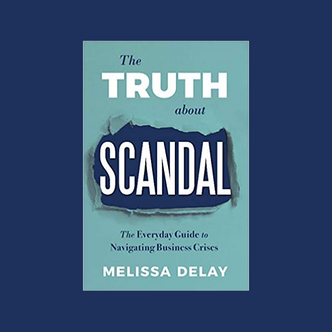When I was in my late 20s, I was working at my first corporate job. During my annual performance review, my boss said I was pushy, aggressive, and overbearing.
I knew he wasn’t my biggest fan, but I was surprised to hear such seemingly negative feedback. Of course, I didn’t like it. I wanted him to give me a glowing review. But he chose to criticize instead.
I wasn’t exactly sure how to turn the tables — I was far from the crisis manager and communications expert I am now — but I knew I had to give it a shot.
I asked, “Can you give me an example of a time when my being pushy, aggressive, and overbearing has impacted my ability to get results for the department or the company?”
He couldn’t. “It’s just a general observation,” he said.
In other words, he didn’t like me. Here’s the thing about criticism: sometimes it comes from an unhealthy place. Sometimes it isn’t based on results at all. And if that’s the case, it isn’t helpful to the recipient.
If you’ve ever been criticized or insulted by a supervisor, it can be hard not to take it personally. You may want to retreat, lick your wounds and re-evaluate your career choice. Or you may want to diplomatically deny the accusation and put up a fight.
I suggest the following:
- Determine if the criticism has merit.
- Ask for an example of alleged indiscretion. If your boss says you’re unorganized and your desk is a mishmash of files, she may be right. You have your marching orders. But if there’s no credible evidence of the accusation, you don’t have to accept it as truth. In fact, I took my criticism as a compliment.
- Decide what to do with the information.
- As CEO of you, you determine what is worthy of your attention and what isn’t. You control your future. Know what it is you want to get out of this job, or out of this career, and how you plan to get there. What professional advice is going to help you vs. hinder you?
- Take action.
- I help my leadership development clients develop specific goals for themselves. Sometimes these goals are shared by their employers. Sometimes they’re not. But we always work on building an authentic personal brand that creates positive perceptions both in their business and personal lives.
Office politics can get ugly. I hear of conflicts, controversies, and bad bosses nearly every day. I’ve been a guest speaker for many of them to help manage and avoid crises, boost engagement, and build a stronger brand that their employees want to be a part of.
It can be challenging to respond appropriately when plunged into these situations. But with a clear personal brand and the right words in your communication toolkit, you can lead from a position of power and be taken more seriously — no matter who you’re dealing with.










